Septoplasty in Abu Dhabi
Search and Compare the Best Clinics and Doctors at the Lowest Prices for Septoplasty in Abu Dhabi
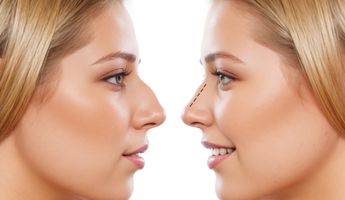
Find the best clinics for Septoplasty in Abu Dhabi
With Medijump you can browse 3 facilities offering Septoplasty procedures in Abu Dhabi. The cheapest price available is $1,871 in Dubai, Sharjah
Septoplasty in United Arab Emirates
Price: $ 1,871
Septoplasty in Dubai
Price: $ 1,871
Septoplasty in Abu Dhabi
Price: $ 4,529
Romania offers the best prices Worldwide
Price: $ 404
From 136 verified reviews
Junaid Tehseen, 22 September 2020
Visited recently but I must say I experienced a true 5 star experience which I have never expected in a Hospital ,, I needed an assistant, Mr Shady Soleiman one of the manager in hospital met me assisted me with every thing and made my life so easy in a very difficult situation Thank you and every one
From 65 verified reviews
Mutasim Goraish, 06 September 2020
It's a good place and number one for the medical clinic in JCC it's like ahotea Clinic 😀
Universal Hospital, located in Al Wahdah, Abu Dhabi, United Arab Emirates offers patients Septoplasty procedures among its total of 110 available procedures, across 15 different specialties. Currently, there's no pricing information for Septoplasty procedures at Universal Hospital, as all prices are available on request only, whilst the national average price is approximately ฿161,818. There are many specialists available at the Hospital, with 14 in total, and they have multiple recognized accreditations, including: JCI AccreditedISO 9001:2008
- Home
- United Arab Emirates
- Abu Dhabi
Compare Before & After Photos of _procedure_photos.phpSeptoplasty
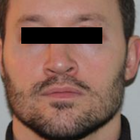
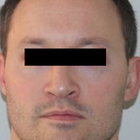
Front view
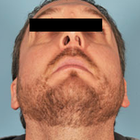
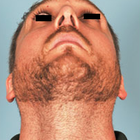
Front view
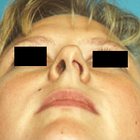
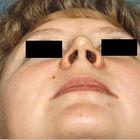
Front view
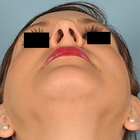
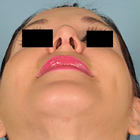
Front view
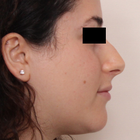
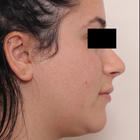
Full-side view
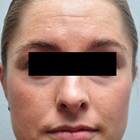
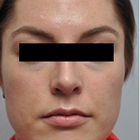
Front view
WHY US?
At Medijump, we're making medical easy. You can search, compare, discuss, and book your medical all in one place. We open the door to the best medical providers worldwide, saving you time and energy along the way, and it's all for FREE, no hidden fees, and no price markups guaranteed. So what are you waiting for?

Free

Best Price

Widest Selection

Risk-Free
What you need to know about Septoplasty in Abu Dhabi
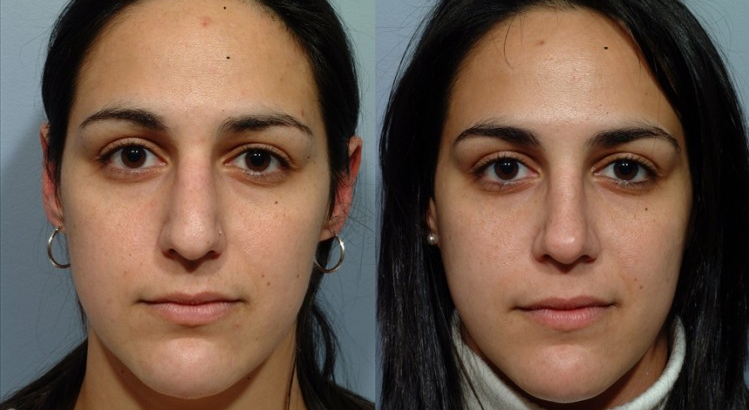
A septum is a bone and cartilage that separates the nasal cavity of the nose. When your nasal septum is off-center, crooked, or moved to one side of your nose, it is a condition known as a deviated septum and can make breathing difficult. To correct this condition, you may need to undergo Septoplasty, where your septum will be straightened to allow better airflow through your nose. This surgery is the only way to fix a deviated septum. However, septoplasty may also be performed to treat long-term sinusitis, remove nasal polyps, or treat other conditions that block the nasal airways. Sometimes, surgeons also recommend this surgery to stop recurrent nosebleeds and facial pains. For conditions other than deviated septum, surgeons often only recommend septoplasty after ruling out other treatments.
What does a Septoplasty Procedure Involve?
A deviated septum is common, but when the condition is severe, it can block one side of your nose and reduce airflow. It can also contribute to crusting or bleeding. If you experience difficulty breathing through your nose that significantly affects your life, you may want to consider septoplasty. Before the surgery, your doctor will review the details of the surgery and ask you to complete some routine tests, such as a blood test, electrical heart tracing, or X-ray. Be sure to tell your doctor if you have any possible allergies. To prepare for the procedure, you may need to stop taking certain medications at least two weeks before the surgery because they can increase your risk of excessive bleeding and the medications include aspirin, ibuprofen, and other blood-thinners.
Septoplasty can be carried out under local anesthesia or general anesthesia. If you have the surgery under local anesthesia, you should not eat or drink anything after midnight the night before the procedure. Not eating and drinking will prevent you from vomiting and choking if the anesthesia nauseates you during surgery. Your surgeon will start the surgery by making an incision on one side of your nose to access the septum. They will then lift the mucosa lining that covers the cartilage and bone. Next, they will reshape the cartilage and bone to move the deviated septum to the correct position. Extra pieces of bone or cartilage that make barriers will be removed. Then, they will reposition the mucous membrane. You may need stitches to hold the septum and membrane in place. Soft silicone splints are sometimes inserted inside the nostrils to support the septum. The whole procedure takes between 30 to 90 minutes to complete.
How Long Should I Stay in Abu Dhabi for a Septoplasty Procedure?
Septoplasty is an outpatient procedure, which means you will likely go home on the same day of the surgery after the anesthesia has worn off unless major complications arise. However, you should stay in the Abu Dhabi for 3-4 days for the initial recovery and follow-up checkups. If your surgeon places splints in the nose, they will be removed within seven days. You may return home when your surgeon allows you as long as there is no complication.
What's the Recovery Time for Septoplasty Procedures in Abu Dhabi?
You may feel drowsy for a few hours following the surgery and you may also feel pain. However, your surgeon will prescribe medication to help with the pain. Some congestion and bleeding can occur after you are discharged from the hospital as your body recovers, but these symptoms should be gone in 2 weeks. The recovery period varies from one person to another. In general, you should be able to return to work within a few days, but you should allow at least three weeks before going back to your full normal routine. You should also limit your physical activities such as exercise for several weeks to minimize swelling and speed up healing because intense physical activities can increase your blood pressure and lead to bleeding.
What sort of Aftercare is Required for Septoplasty Procedures in Abu Dhabi?
Your doctor will give you post-operative care instructions, which you will need to follow, The wound on your nose will heal fairly quickly, and your breathing will improve shortly after the procedure. For a quicker recovery, you may need to elevate your head at night to keep the swelling down, wear a button-up shirt so you do not need to pull clothing over your head, and do not blow your nose for at least two to three days after surgery. Avoid drinking alcohol, smoking tobacco, returning to work too soon, strenuous activities, and being in a crowd where people are smoking or coughing.
What's the Success Rate of Septoplasty Procedures in Abu Dhabi?
The success rate for septoplasty is high, with up to 85% of people experiencing a significant improvement in their nasal blockage after surgery.
However, some people will require a second surgery if they are not satisfied with the results. Septoplasty is a very low-risk procedure, but you should be aware of the possible complications and side effects and these risks can include:
- Bleeding in small amounts is common, but in rare cases, excessive bleeding may occur.
- Infection can occur after septoplasty because the nose is not a sterile environment.
- Toxic shock syndrome is a very rare and life-threatening infection.
- Septal perforation is a small hole that can sometimes develop in the nasal septum during or after the surgery.
- Spinal fluid leak and it is extremely rare.
Other risks such as scarring, and altered nose shape, discoloration of the nose, a decreased sense of smell, tooth or nose numbness, and continuing symptoms are also possible. Other than following your surgeon’s aftercare instructions, keeping the nose clean and washing your hands often can reduce the risks.
Are there Alternatives to Septoplasty Procedures in Abu Dhabi?
Although most conditions of a deviated septum can only be treated by septoplasty, there are nonsurgical treatments for other nasal blockages to help you breathe better. If your nasal blockage is caused by an allergy, you may take antihistamines from your doctor or over-the-counter. In cases of bacterial infection, your doctor can prescribe antibiotics to help clear the nasal airways.
Whilst the information presented here has been accurately sourced and verified by a medical professional for its accuracy, it is still advised to consult with your doctor before pursuing a medical treatment at one of the listed medical providers
No Time?
Tell us what you're looking for and we'll reachout to the top clinics all at once
Enquire Now

Popular Procedures in Abu Dhabi
Prices Start From $1,945

Prices Start From $101

Prices Start From $192

Prices Start From $500

Recommended Medical Centers in Abu Dhabi for Septoplasty

- Interpreter services
- Translation service
- Religious facilities
- Medical records transfer
- Medical travel insurance
- Health insurance coordination
- TV in the room
- Safe in the room
- Phone in the room
- Private rooms for patients available

- Interpreter services
- Translation service
- Religious facilities
- Medical records transfer
- Medical travel insurance
- Health insurance coordination
- TV in the room
- Safe in the room
- Phone in the room
- Private rooms for patients available

- Interpreter services
- Translation service
- Religious facilities
- Medical records transfer
- Medical travel insurance
- Health insurance coordination
- TV in the room
- Safe in the room
- Phone in the room
- Private rooms for patients available

- Interpreter services
- Translation service
- Religious facilities
- Medical records transfer
- Medical travel insurance
- Health insurance coordination
- TV in the room
- Safe in the room
- Phone in the room
- Private rooms for patients available

- Interpreter services
- Translation service
- Religious facilities
- Medical records transfer
- Medical travel insurance
- Health insurance coordination
- TV in the room
- Safe in the room
- Phone in the room
- Private rooms for patients available
Septoplasty in and around Abu Dhabi
About Abu Dhabi
Abu Dhabi is the capital city of the United Arab Emirates and the richest city in the country due to its oil fields. Abu Dhabi is an advanced but conservative cosmopolitan city. In 2018, the city was ranked as the safest city in the world with the lowest crime index of more than 300 cities.
Culture, adventures, shopping malls, to coastal beauty; Abu Dhabi has a lot to offer that will leave anyone in awe. The city is filled with opulent architecture, making the skyline of Abu Dhabi a captivating view.
Abu Dhabi is now developing to be the region’s leading medical tourism destination. The government is working continuously to establish a world-class healthcare system. The city targets patients from other Gulf Cooperation Council (GCC) Countries, Russia, China, and other parts of the world. Attracting top-quality doctors and a range of specialist services, Abu Dhabi focuses its procedures on cardiology, oncology, and executive screenings. A total of 16 public and private hospitals in Abu Dhabi offer a wide range of medical treatment with quality care. Cleveland Clinic Abu Dhabi, Ahalia Hospital Musafahl, and Burjeel Hospital are among the highest-regarded medical facilities in the city. The city attracts many medical tourists for the following reasons.
- Medical facilities with the highest standards and international accreditations.
- Treatment using cutting-edge technology.
- Medical interpreters who speak a range of languages.
- The best hospitality, at the hospital, and throughout the city.
Popular Areas in Abu Dhabi
With a beautiful mixture of ultramodern architecture and Islamic traditions, Abu Dhabi is packed with amazing attractions and exhilarating adventure.
- Sheikh Zayed Grand Mosque is the United Arab Emirates’ largest place of worship that attracts millions of tourists each year. The mosque is an architectural wonder, mesmerizing even to the little details. Tourists can choose to get a free one-hour guided tour to get the best insight into the religion and culture that surrounds the mosque.
- Louvre Abu Dhabi is an art and civilization museum that has been open since 2017. The museum is showcasing artworks from around the world. Apart from the artwork, the architecture of the museum is also breathtaking with a web-patterned dome that allows sunshine to filter through.
- Al-Ain Oasis is a UNESCO World Heritage Site. The oasis has only been open to the public recently. It is full of palms and mango trees. Al-Ain Oasis is home to a 3000-year-old falaj irrigation system, the oasis provides an insight into the history of Abu Dhabi inhabitants.
- Ferrari World is the perfect place for tourists who want to celebrate all things, Ferrari. People come to this indoor theme park to experience Formula Rossa, the world’s fastest roller coaster.
- Abu Dhabi Corniche is a beautiful clean beach with great views of turquoise waters and Abu Dhabi skyline that will not disappoint. Tourists can enjoy a day under the sun lounging on the beach, walk along Corniche Road, or admire the sunset.
Weather and Climate in Abu Dhabi
Abu Dhabi has a subtropical climate. The city enjoys sunny skies and hot temperatures throughout the year. Summer starts from May to September and the average temperature ranges between 38–42°C. During the hottest days, the temperature can get as high as 48°C. Winter starts from December to February, the average temperature is around 13-29°C. Rain mainly falls in winter.
The best time to visit Abu Dhabi is from November to April when the temperature is cooler and more pleasant.
Despite the heat in the summer, it is advised to always wear modest clothing as the locals do not welcome revealing or tight clothing. Lightweight and comfortable clothing are suitable most of the year.
Getting Around in Abu Dhabi
Abu Dhabi International Airport serves more than 30 airlines that connect the city to more than 60 countries in the world. Etihad Airways dominates the airport terminal spaces. Abu Dhabi International Airport mainly serves major airlines, although budget airlines such as Airblue Limited and IndiGo also operate flights.
Tourists can choose the airport taxis, buses, or hire a car to get to their destinations from the airport. Airport taxis cost around 75AED to 85AED for a trip to the city center. If you want to take the airport bus, purchase a Hafilat card from the vending machine at the airport terminal bus stop.
There are many ways to get around Abu Dhabi. Taxis are relatively cheap and metered; tourists can flag down the taxis or order through a call center. Abu Dhabi also has a city bus that operates on 14 routes between 6.00 am to 11.00 pm, most fares are 2AED. Hiring a car can be a good way of getting to many destinations as it offers more flexibility. If you’re in Corniche or Yas Island, hiring a bike is the best choice to explore these Islands.
The ever-changing street names and numbering system can be confusing, so it is advisable to describe the landmark you are looking for.
Tourist Visas in Abu Dhabi
Citizens of 60 countries can get a free entry visa (30 or 90 days depending on the country) upon arrival. Gulf Cooperation Council (GCC) citizens do not require a visa to enter Abu Dhabi. Citizens of other countries need to apply for a visa before entering Abu Dhabi through the nearest UAE embassy.
Tourists flying with Etihad Airways to Abu Dhabi International Airport can request a visa arrangement. All visitors are required to hold a passport valid for at least 6 months.
Additional Information
- Local Currency: The local currency is the United Arab Emirates dirham or Emirati Dirham (AED). 1 USD gets you around 3.7 AED. The notes are written in Arabic letters.
- Money & Payments: ATMs and currency exchanges are available across the city. Hotels, restaurants, and shops accept credit cards, debit cards, and cash. Tipping is common, but not expected. Tipping a hotel and restaurant staff is at your discretion. Many high-end restaurants may add a service charge of around 10% and a tourism levy of around 6%.
- Local Language: Arabic is the official language, but English is widely spoken especially in the city center. Road and shop signs are written in Arabic and English.
- Local Culture and Religion: The culture in Abu Dhabi is deeply rooted in Arabia’s Islamic Tradition. Islam is the official religion but people can freely practice their religion as long as they don’t interfere with Islam.
- Public Holidays: Ramadhan is hugely celebrated with the biggest festivals and the city is beautifully decorated. It is important to remember that during Ramadan, drinking, eating, and smoking at fasting hours (daylight) is illegal. Nightclubs are closed for the whole month. Other public holidays are the Islamic New Year, the Prophet’s Birthday, the King’s Coronation Day, Diwali, and Chinese New Year.
Popular Searches
- Plastic Surgery in Thailand
- Dental Implants in Thailand
- Hair Transplant in Thailand
- Breast Augmentation Thailand
- Gastric Sleeve in Thailand
- Gender Reassignment Surgery in Thailand
- Laser Hair Removal in Bangkok
- Botox in Bangkok
- Dermatology in Bangkok
- Breast Augmentation in Bangkok
- Coolsculpting in Bangkok
- Veneers in Turkey
- Hair Transplant in Turkey
- Rhinoplasty in Turkey
- Stem Cell Therapy in Mexico
- Rhinoplasty in Mexico
- Liposuction in Mexico
- Coolsculpting in Tijuana
- Rhinoplasty in Korea
- Scar Removal in Korea
- Gastric Sleeve in Turkey
- Bone Marrow Transplant in India
- Invisalign in Malaysia
- Plastic Surgery in the Dominican Republic
- Tummy Tuck in the Dominican Republic
- Plastic and Cosmetic Surgery in Poland
- Rhinoplasty in Poland
- Hair Implant in Poland
- Dental Implants in Poland
- IVF in Turkey


